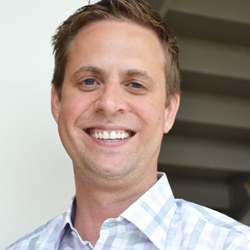In the Spotlight
Paul Komenda, MD
 Paul Komenda went to medical school in Manitoba and did his internal medicine residency at the University of Western Ontario. It was at the University of BC he did a nephrology fellowship and his MBA Health Administration qualification. He also met a mentor who encouraged him to consider formally building his leadership skills. Paul works as an academic nephrologist, which means half of his time is spent teaching as an associate professor and half of his time is clinical. Administration and health care planning are areas of interest for him.
Paul Komenda went to medical school in Manitoba and did his internal medicine residency at the University of Western Ontario. It was at the University of BC he did a nephrology fellowship and his MBA Health Administration qualification. He also met a mentor who encouraged him to consider formally building his leadership skills. Paul works as an academic nephrologist, which means half of his time is spent teaching as an associate professor and half of his time is clinical. Administration and health care planning are areas of interest for him.
"In order to have a truly optimally functioning interprofessional team, you need to get over yourself. You need to get over the fact that you need to change, to do things differently, to put trust in other people and give up the autonomy to run your day exactly how you want."
How did you decide to work in health care? Why?
My Dad's a doctor. It's cliché but I wanted to make a difference for people in a noble profession where you're using science and evidence to influence people's lives.
What is a typical day like?
I'm not sure it's a typical day but yesterday started at 5:30 am. I got my one year old ready for daycare and dropped him off. I went to Seven Oaks General Hospital and did a conference call with a health economist in Toronto and one of my Master's students. We talked about designing a health economic model for optimizing dialysis delivery in Canada.
The remainder of my day was a combination of administration, teaching and clinical time. I supervised and interviewed the physician assistant and nephrology fellows who are working with me. I went to meetings on projects I'm contributing to - including the electronic implementation of the kidney health record, the weekly research meeting and the province wide screening meeting. I also saw about 15 patients in the clinic.
After hours, I was on call and took calls until 1:00 am for issues around the province.
What has had a profound influence on your practice?
I had an excellent mentorship in Vancouver when I was in the science/research track after my clinical training. She suggested that I had a knack for health administrations and that I get formal training in this area. She gave me valuable advice, that formal training would help me be competitive because there is a need for physicians to take on leadership roles. She told me there are people who work as hard at leadership training as we do at medicine - learn what it's taken me 30 years to learn. That was really powerful for me.
What impact has the EXTRA project had on your career?
I've presented in the Region on my research about building interprofessional kidney health clinics to help people prepare for dialysis. I was known for my work around interprofessional teams around the Region when Kathleen and Susan approached me. It gave me the opportunity to further training and network opportunities with people who had similar career aspirations to me.
EXTRA also gave me the opportunity to pursue other formal leadership and executive training. It's been powerful continuing that journey.
What gets you out of bed in the morning?
A crying baby. He cries when he's hungry. I take him out of the crib and bring him to my wife. That's when he starts laughing, he's so excited. It's the best part of my day.
What are your reflections on Collaborative Care?
Health care is so stressful. Change is always so hard. For physicians, from my perspective - but this applies to everybody - in order to have a truly optimally functioning interprofessional team, you need to get over yourself. You need to get over the fact that you need to change, to do things differently, to put trust in other people and give up the autonomy to run your day exactly how you want.
We're expected to deliver excellence in health outcomes. There's a high degree of expectations with more and more budgetary constraints. We need to do more with less, which requires us to work as truly efficient interprofessional teams. Influencing key decision makers in changing the way the Region or health care is structured can help us achieve that. It's going to be a long, constant journey to get there.
Collaborative Care improves job satisfaction, patient satisfaction and patient outcomes. It's so much better to work in this environment. It takes work, dedication, moving outside your comfort zone to achieve that but it's worth it.
What's next?
I consider the three of us to be experts in this field to an extent. Right now, with current knowledge in this area, we have some expertise to contribute. We want to see the sustainability and the evolution of the program.
